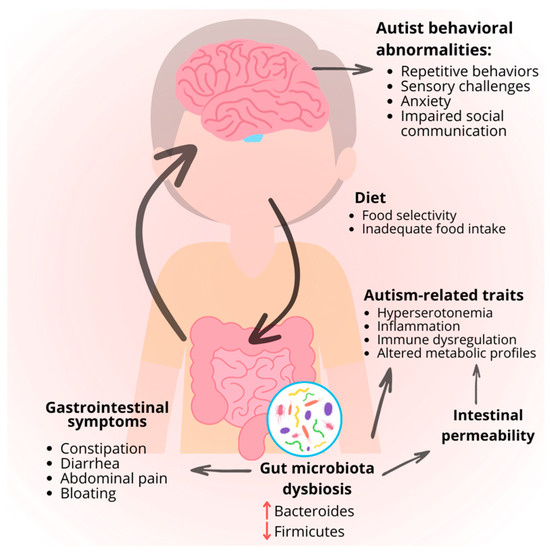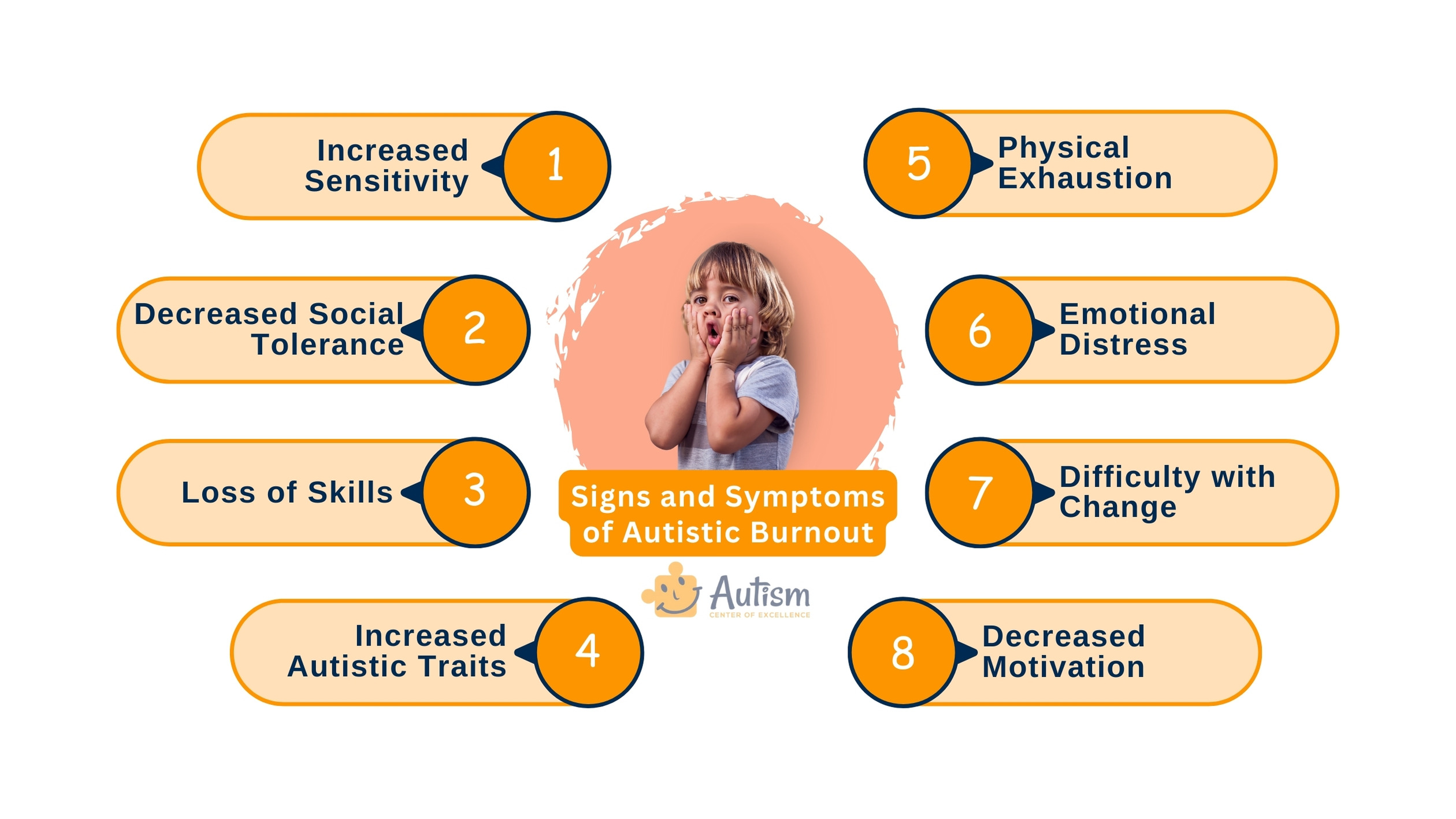The role of structured routines benefit autistic individuals—according to an Autism Therapist
The role of structured routines benefit autistic individuals—according to an Autism Therapist
Blog Article
Secret Symptoms And Signs to Recognize in People With Behavior Autism
When you run into a person with behavior autism, acknowledging essential indications and symptoms is important. You might notice challenges in social communications and interaction, in addition to a strong need for regimens. Furthermore, sensory sensitivities can lead to frustrating experiences. Recognizing these qualities can improve your support and treatments, however there's more to uncover concerning exactly how these behaviors show up in daily circumstances. Let's explore what these signs actually appear like.
Difficulties in Social Interactions
When you engage with a person on the autism spectrum, you could notice they have a hard time with social signs and communication. These difficulties can make social communications feel frustrating for them.
Additionally, you might find that they like regimens and acquainted settings, which can restrict their readiness to participate in new social scenarios. When they do engage, they could talk regarding their passions in terrific information without seeing if you're interested. This can bring about prejudiced discussions that leave you really feeling detached. Understanding these difficulties can help you come close to interactions with compassion and perseverance, fostering an extra comfy setting for both of you.
Trouble With Verbal and Non-Verbal Interaction

Non-verbal interaction can be even more challenging. You could see a lack of eye call or restricted usage of gestures, which can make communications feel uncomfortable. Facial expressions may not constantly line up with the discussion, causing confusion regarding their feelings. Identifying these indications is important, as it aids you better assistance and involve with individuals on the autism range. By understanding their communication obstacles, you can foster a lot more purposeful connections and supply a more supportive setting.
Repetitive Habits and Regimens
Interaction obstacles typically come with various other signs of autism, such as repeated actions and a solid preference for routines. You could notice that individuals with autism frequently participate in details, repetitive activities, like hand-flapping, shaking, or duplicating phrases. These behaviors can offer convenience and a feeling of control in a typically frustrating world.
Regimens are just as important; several individuals thrive when they follow an organized timetable. You may discover that adjustments to these regimens can lead to significant distress. If they have a day-to-day routine of eating breakfast at a particular time or following a specific path to school, any type of disturbance can cause stress and anxiety.
Recognizing these patterns helps you understand their habits and provide assistance. By accommodating their demand for routine and permitting repeated actions, you can create a much more comfortable atmosphere that eases their obstacles.
Sensory Sensitivities

Usual Sensory Triggers
Sensory sensitivities can significantly affect daily life for individuals with autism, as specific stimulations frequently trigger overwhelming responses. Common sensory triggers include loud noises, bright lights, and solid scents. Comprehending these triggers can assist you manage your setting much better.
Behavior Reactions Explained
Recognizing your behavioral actions to sensory level of sensitivities is important, as they usually reveal exactly how you connect with the world. You might additionally locate on your own looking for specific sensory experiences, like deep stress or silent environments, to assist ground on your own. Recognizing these patterns helps you comprehend your demands better and can assist just how you communicate them to others.
Coping Techniques Overview
Recognizing your sensory sensitivities is simply the very first action; now it's time to explore coping methods that can help you manage those experiences properly. Start by producing a sensory toolkit customized to your requirements. Establishing an organized regimen can additionally provide predictability, reducing anxiety around sensory overload.
Limited Interests and Emphasis
While lots of individuals establish a wide variety of rate of interests, those with autism commonly show limited interests and an extreme concentrate on certain subjects. You may discover that someone with autism can spend hours delving into their favored topic, whether it's a particular kind of train, a certain flick, or a clinical concept. This intense focus isn't simply a leisure activity; it can become a central part of their identity and social interactions.
You might locate that discussions revolve around these interests, and they may have a hard time to engage in broader subjects. For them, these focused passions give convenience and a feeling of proficiency. While it's vital to motivate expedition of new topics, valuing their passions is equally necessary. By comprehending and recognizing these restricted rate of interests, you can foster a helpful atmosphere where they feel valued and understood, permitting more meaningful links and interactions.
Emotional Policy Problems
People with autism often deal with challenges in emotional law, which can be affected by their extreme focus on details interests. You might notice that when a person is deeply participated in a favored task, they can experience solid feelings, whether exhilaration or irritation. This intensity sometimes makes it tough for them to shift gears or manage their feelings when things don't go as intended.

Irregularity in Developing Landmarks
When it involves developmental milestones, you'll informative post notice that individuals with autism commonly show a large array of variability. Some might hit milestones on time, while others might drag or progress at a different rate. For example, you could see a kid master language abilities but battle with social communications. This disparity can be confusing, as traditional criteria do not always use.
It's necessary to recognize that each person's trip is one-of-a-kind. Some might establish complicated skills early, only to face difficulties in the future. Others could take longer to attain basic turning points however after that prosper in certain locations. Observing these patterns can aid you recognize their toughness and requires much better.
Frequently Asked Inquiries
Just How Is Autism Diagnosed in Kid and Grownups?
To detect autism in adults and children, experts assess actions, interaction abilities, and social interactions. If an individual meets the standards for autism spectrum problem., they typically utilize standard examinations, interviews, and observations to identify.
Exist Different Kinds Of Autism Range Disorders?
Yes, there are different sorts of autism range problems, consisting of Asperger's syndrome and prevalent developmental disorder-not or else defined. Each kind varies in severity and features, so understanding these differences can aid you far better assistance people with autism.
What Therapies Work for Individuals With Autism?
When thinking about efficient treatments for people with autism, you'll locate choices like Applied Behavior more helpful hints Analysis, speech therapy, and occupational therapy. Each method can aid boost communication, social skills, and everyday operating customized to individual requirements.
Can Individuals With Autism Lead Independent Lives?
Yes, people with autism can lead independent lives. With the right support, abilities training, and sources, you can help them create self-sufficiency, manage everyday jobs, and grow in various settings, promoting their self-reliance.
Just How Can Families Support Liked Ones With Autism?
You can support your enjoyed ones with autism by developing a structured setting, urging their rate of interests, exercising patience, promoting communication, and promoting social skills. Commemorate their achievements, despite exactly how tiny, and build a supportive area.
Although several people on the autism range can utilize and comprehend language, they usually deal with significant challenges with both non-verbal and verbal interaction. Recognizing these signs is essential, as it helps you better assistance and engage with people on the autism spectrum. You might discover that people with autism often involve in particular, repeated activities, like hand-flapping, shaking, or duplicating phrases.Sensory level of sensitivities can significantly impact everyday life for people with autism, as specific stimuli commonly trigger overwhelming reactions.When it comes to developing turning points, you'll observe that people with autism usually show a large array of variability.
Report this page